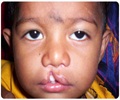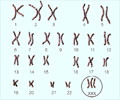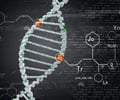The way in which genes on sex-linked chromosomes are passed down generations and linked to fertility has been clarified by researchers

"Y chromosomes are here to stay, and are not the genetic wasteland that they were once thought to be," Professor Judith Mank, from the UCL Department of Genetics, Evolution and Environment and senior author said.
W chromosomes in female chickens are entirely analogous to Y chromosomes in men in that they are sex-limited and do not re-combine when males and females reproduce, as the other regions of the genome do.
Recombination allows chromosomes to break up linked genes, which makes selection more effective and helps get rid of faulty mutations. Some scientists think that Y and W chromosomes are doomed because of this lack of recombination.
The study, which involved researchers at UCL, Oxford and the Swedish Agricultural University, compared DNA regions on the W chromosome in different breeds of chickens, whose fertility rates are very easy to measure simply by counting eggs.
Genetic information from two breeds, the Minorca and Leghorn, which lay more than 250 eggs per year, were compared with two breeds selected for male traits (fighting and plumage) called Yokohama and Old English Game. The researchers also looked at Red Jungle Fowl, a wild ancestor of chickens.
The researchers measured gene expression levels from the W-linked genes in all the breeds, and showed that selection for laying lots of eggs has led to elevated gene expression for almost all the W-linked genes in the layer breeds.
At the same time, relaxed female selection in the fighting and plumage breeds has led to a loss of W gene expression.
This means that female-specific selection related to fertility acts to shape the W chromosome, and that the chromosome is able to respond to that selection despite all the problems with the lack of recombination.
"We have shown that Y and W chromosomes are very important in fertility - the Y in males and the W in females. It is the ability of the W-linked genes to evolve that is the key to their survival, and which suggests that both the Y and the W chromosomes are with us for the long haul," Professor Mank added.
The study has been published in the journal Proceedings of the National Academy of Sciences (PNAS).
Source-ANI













